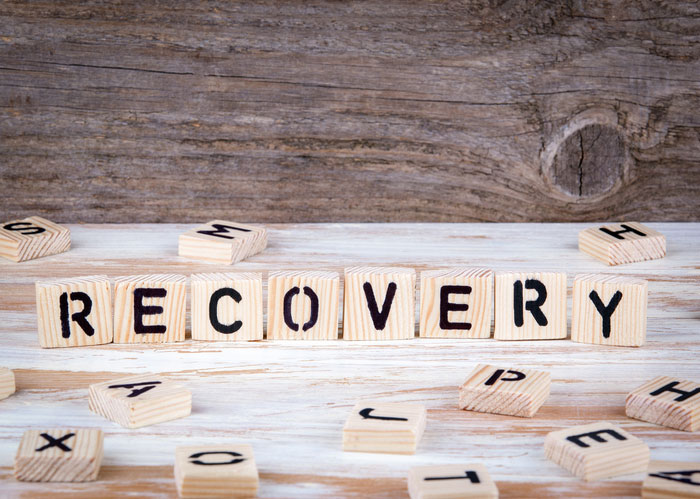Written by Helen Lewis
In North Carolina, the abuse of substances is on the rise, with dangerous consequences: according to the NC Department of Health and Human Services (NCDHHS), in 2020 alone, emergency departments in the state catalogued 15,000 overdose-related visits.
As these numbers increase, so, too, increases the number of positions for social workers equipped to help people struggling with substance abuse. A recent estimate from the Bureau of Labor Statistics estimates that jobs for mental health, behavioral disorder, and substance abuse counselors will grow by close to 20% in the next ten years.
MSWs are particularly well-positioned to apply for these positions and fill these needs within treatment centers.
Due to the training that MSWs engage in during their studies, they are capable of providing psychotherapy, supporting hospitals and outpatients as discharge partners, strengthening families, and facilitating the treatment of addicts in recovery.
North Carolina’s Battle Against Substance Abuse
Between 2019 and the first year of the COVID-19 pandemic in 2020, deaths by drug overdose increased by 40%. Opioids—including both prescription medication and heroin—and methamphetamine are some of the largest problem substances among people struggling with addiction in North Carolina.
Today, the NCDHHS is partnering with community and local government organizations, safe syringe programs, and treatment centers to provide people in recovery with naloxone, a medication that is used to treat an overdose from narcotics. The NCDHHS has also mobilized 15 mobile health clinics, which will provide medical care—from patient assessments to emergency treatment—to North Carolina residents who live far away from hospitals, urgent care centers, and private practices.
Though the COVID-19 pandemic created a tragic spike in fatalities related to substance abuse, the pandemic also ushered in a positive new development in making care for patients with substance abuse issues even more accessible, namely: technology.
Today, social workers in North Carolina can use video conferencing platforms to provide therapy to patients from anywhere.
How MSWs are Helping
In the field of helping people along the road to recovery, social workers can offer a wide range of vital services to people in need. This can include things like:
- Connecting patients to mental health resources, like suicide prevention hotlines and rehabilitation programs
- In schools, collaborating with, assisting and diagnosing students who may have mental illnesses or learning differences, tying in their teachers and families so that no one falls behind
- Advocating for policy improvements at the local, state, and national levels to better serve patients with addictions
- Helping patients set goals on their path to recovery
- Keeping up-to-date with a patient’s progress
- In the event of legal and medical concerns, being able to connect the patient to the relevant professionals who will be able to swiftly and effectively treat them or take on their case
Social workers generally treat substance abuse with a philosophy known as “harm reduction”; what the National Association of Social Workers describes as “meeting the client where the client is.”
However, many consider the field of social work in addiction and recovery to be incredibly challenging, because of the frequency of relapses and the emotional volatility of patients in the early stages of recovery.
Do I have to have an MSW to work with people in recovery?
No, but it’s highly recommended. An MSW is not technically a requirement of working with patients suffering from addictions, but a clinical social worker—meaning someone who is equipped to serve patients in clinical settings, like a hospital or a private practices—needs to have an MSW from an accredited institution in order to be hired to work within that setting.
How an MSW Prepares You for Work in Substance Abuse Recovery
While an MSW is not a prerequisite to work as a social worker within various contexts for treating people with substance abuse issues, it is likely to be very helpful, as the process of attaining a master’s in social work includes valuable education about and professional experience in critical topics that can prove very useful to your patients’ well-being.
For example, social workers in a master’s program are likely to learn about topics like child welfare and family dynamics; comorbid substance abuse and mental disorders; relevant and current laws regarding professional standards and treatment options; and psychological, emotional, and physiological well-being, particularly as they intersect with diagnosis and patient assessment.
The Intersection of Mental Health and Substance Abuse
Many patients struggling with addiction may also be living with mental illness, which may or may not be diagnosed. In fact, according to the National Institute of Mental Health, patients suffering with addictions may be diagnosed with Substance Use Disorder (SUD), which is considered to be a “treatable mental disorder” with not-infrequent co-incidence of existing, other mental health conditions.
Research has shown that a number of psychiatric ailments, including post-traumatic stress disorder (PTSD), depression, bipolar disorder, attention-deficit hyperactivity disorder (ADHD), schizophrenia, and anxiety, can prompt or exacerbate substance abuse issues, as it can take the form of self-medication. One study found that up to 60% of teenagers in treatment for substance abuse were also diagnosed with comorbid mental illnesses. Relatedly, those struggling with SUD may also be dealing with other addictive behaviors, such as gambling or binge-eating.
There is also the possibility that substance abuse can result in mental illness, as some drugs may affect the brain in such a way as to catalyze severe psychiatric effects. Teenagers are particularly vulnerable to both substance abuse and long-term ramifications from substance abuse, as their brains are still developing, and may be more damaged by the abuse of drugs and alcohol.
Prevention
Social workers play a pivotal role in the prevention of substance abuse through a multifaceted approach to addressing the root causes and risk factors associated with addictive behaviors.
One primary focus involves community-based interventions that aim to build resilience and support systems, particularly among at-risk populations. Social workers collaborate with schools, community organizations, and local agencies to develop and implement preventive programs that educate individuals about the dangers of substance abuse and equip them with essential life skills. By fostering a sense of belonging and providing resources for coping with stress and adversity, social workers can contribute to the creation of environments that discourage vulnerable people, and particularly minors, from taking up substance use.
In addition to community initiatives, social workers are instrumental in implementing preventive strategies within educational settings. They work closely with students, teachers, and families to identify early signs of risk and provide targeted interventions.
Through school-based prevention programs, social workers empower young individuals with knowledge about the consequences of substance abuse, decision-making, recognizing peer pressure, and positive friendships.
Social workers can also engage in advocacy efforts to shape policies aimed at preventing substance abuse on a broader scale. They collaborate with policymakers to develop evidence-based strategies, promote harm reduction initiatives, and ensure access to treatment and support services. By advocating for comprehensive approaches that address social determinants of substance abuse, social workers contribute to creating a more resilient and healthy society, emphasizing the importance of prevention as a key component of the broader spectrum of addiction care.
Harm Reduction
Harm reduction is a pragmatic, compassionate approach to addressing substance abuse that focuses on minimizing the negative consequences associated with drug use, rather than solely advocating for abstinence.
This philosophy recognizes the complex, multifaceted nature of addiction, acknowledging that quitting “cold turkey” may not be immediately achievable or realistic for everyone. Instead, harm reduction strategies aim to reduce the potential risks and harms associated with substance use, emphasizing the preservation of health, dignity, and human rights.
One key aspect of harm reduction involves the distribution of clean needles and syringes to individuals who use drugs intravenously. This practice helps prevent the spread of bloodborne infections such as HIV and hepatitis C while offering an opportunity for engagement and connection with healthcare services.
Harm reduction initiatives may include the provision of naloxone, an opioid antagonist that can reverse opioid overdoses, empowering both individuals who use drugs and their communities to respond effectively to life-threatening situations. By fostering non-judgmental and client-centered approaches, harm reduction not only addresses immediate health concerns but also creates a foundation for building trust and facilitating entry into treatment and support services for those ready to pursue recovery.
Treatment
Because of the very close overlap between psychiatric distress and substance abuse, social workers and medical professionals are likely to initially treat mental illness and substance abuse at the same time. Some of the preferred therapeutic approaches to substance abuse in adults include:
- Assertive Community Treatment (ACT)
- Cognitive Behavioral Therapy (CBT)
- Behavioral Couples’ Therapy (BCT)
- Contingency Management (CM)
- Dialectical Behavioral Therapy (DBT)
- Motivational Interviewing (MI)
- Therapeutic communities (TC)
- Connecting patients to a 12-Step program
- Medically-Assisted Treatment
- Brief Intervention
- Relapse Prevention
- Community Reinforcement Approach
Today, some addicts in recovery—such as those recovering from opioid, nicotine, and alcohol abuse—can also be treated with the help of prescribed medication, like methadone, naltrexone, bupropion, and varenicline.

Often, the treatment of substance abuse is not only treatment of the person suffering from addiction. This work can also include vital collaboration with patients’ families, or—as in the Community Reinforcement model—encouraging the patient to change their communities, spending time with people who do not trigger them to resume abusing substances.
While social workers provide vital services to patients in recovery, they are most useful when working in conjunction with other skilled professionals, such as a psychiatrist, a sponsor (such as one from a 12 Step program), a case manager, a psychiatrist, and/or a medical doctor.
Support Services
For people struggling with substance abuse issues, there are a number of different spaces in which they can seek out help with the assistance of social workers, such as:
- Schools and universities: School social workers are trained to closely monitor the safety and well-being of students. These professionals are equipped to connect students with academic and behavioral resources and collaborate with families and teachers.
- Inpatient and outpatient facilities: In these settings, trained clinical social workers can facilitate group therapy for patients in recovery from substance abuse. They are also equipped to intervene in the event of emergency, and to help patients in recovery prepare for life after the clinic, including health, employment, and functional relationships.
- Geriatric services and nursing homes: Social workers can address substance abuse among elderly residents by conducting assessments to identify underlying causes, providing counseling and support services tailored to the unique needs of older adults, and collaborating with healthcare teams to implement preventive measures and interventions.
- Hospitals: Both clinical and non-clinical social workers can be on the team in hospitals. Clinical social workers can assess and diagnose patients, and non-clinical social workers can connect patients to resources they may need to continue on the path to holistic recovery, like child welfare agencies, accessible health care, law enforcement, and community organizers.
- Child welfare centers: In child welfare facilities, social workers address substance abuse by conducting thorough assessments of parental substance use, providing family-centered interventions, and collaborating with treatment providers to ensure parents receive the necessary support and resources for recovery.
- Correctional facilities: Within these settings, social workers play a crucial role in addressing substance abuse by conducting assessments, developing individualized treatment plans, and facilitating rehabilitation programs to support inmates in overcoming addiction and promoting successful reintegration into society.
In addition to being able to assess, diagnose, and treat patients in recovery, licensed clinical social workers (LCSWs) are also able to collaborate with the families and loved ones of their patients, providing holistic, compassionate care. In addition to understanding the family and medical histories that may be involved in a patient’s current substance abuse problem, some research has shown that patients are more likely to be successful on their road to recovery when they are supported by their friends and family.
LCSWs can also connect their patients to employment and housing opportunities.

Becoming an LCSW
Licensed clinical social workers, or LCSWs, play a vital role on the frontlines of substance abuse in North Carolina. In general, the majority of social workers in the field of substance abuse and recovery are clinical social workers.
Strengthened by thousands of hours of fieldwork and psychological education, LCSWs are able to work closely with patients in recovery to make meaningful differences in peoples’ lives. But what does the “clinical” component allow you to do?
Most crucially, a clinical social worker will be able to use their training to assess a patient’s environment.
Ideally, in the field of addiction recovery, patients will have not just one professional, but a multi-disciplinary team, including medical doctors and psychiatrists, sponsors, and case managers. Licensed clinical social workers are equipped to help patients through the framework of host (the patient and their role models and/or enablers), agent (the substance), and environment.
Clinical social workers are particularly equipped to consider the patient’s surrounding environment, meaning their family dynamics, housing and citizenship status, employment, and cultural background. This is not only useful for identifying the possible causes of a patient’s struggles with substance abuse, but could also be used for Relapse Prevention down the line. By identifying a patient’s unique triggers (which could be emotional, social, or psychological), social workers can get a sense of the full picture of a patient’s substance abuse issues, and thus better help them restructure their lives to recover and thrive.
The path to becoming an LCSW is time-intensive, and requires social workers to first have a master’s degree in social work (MSW) before applying for licensure. But what exactly does that include?
- Getting a bachelor’s degree: The very first step toward becoming an LCSW is to have a bachelor’s degree, which will very likely be a deciding factor in enabling you to continue on to graduate school. Many, but not all, master’s programs in social work require applicants to have a bachelor’s degree in social work or a related field, such as psychology or sociology.
- Getting a master’s degree (MSW): A Masters in Social Work is a key step to achieving licensure in clinical social work. Alternatively, applicants may also have a DSW (Doctorate of Social Work) or a PhD in social work—but those programs are more time-intensive, as a DSW takes three years to complete, and a PhD can take up to eight years.
- Apply to the North Carolina Social Certification and License Board (NCSCLB): This mandatory step will give you the title of Licensed Clinical Social Work Associate (LCSWA), which will allow you to commence your required fieldwork hours as part of becoming a licensed clinical social worker. Without this title, you will not be able to commence your fieldwork.
- Complete your fieldwork: Applicants for licensure in social work are required to complete at least 3,000 hours of fieldwork in clinical practice. This step must be completed in a minimum of two years and a maximum of six years. It is also critical to ensure that you are adequately supervised during this phase: in North Carolina, LCSWAs must be supervised doing their fieldwork for at least 100 hours by a licensed clinical social worker.
- Take the Association of Social Work Boards Clinical Level (ASWBCL) exam: This 170-question test will assess your knowledge in various fields of clinical social work, including psychotherapy and case management; human development and diversity; and assessment and diagnosis. The ASWBCL exam comes with a mandatory fee of $260.
- Apply for licensure: Finally, you will have to formally apply to be a licensed clinical social worker. The first time you apply, you will have to pay a fee of $145.
Once you are officially a licensed clinical social worker, you must reapply for licensure every two years. This application includes documentation of 40 worked hours and the payment of a fee, which, for renewals, is $150.







